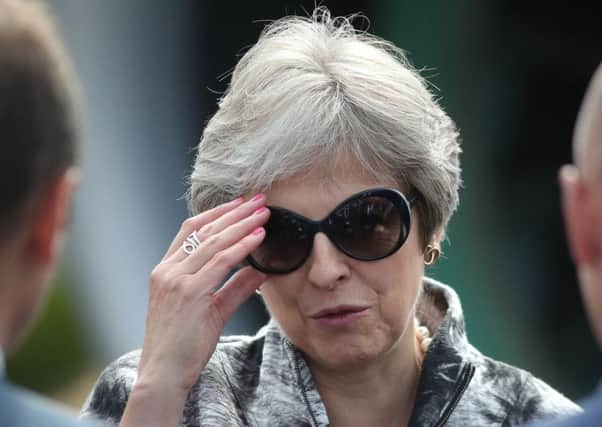Leader comment: With Brexit, there is no Project Hope


The list of possible consequences of Brexit – which has just got a bit longer – has been dubbed “Project Fear” by those who insist that all such talk is merely scaremongering designed to persuade the public that leaving the European Union is a terrible mistake.
Unfortunately, they have conspicuously failed to deliver a credible alternative. No one talks about “Project Hope” because it doesn’t exist. It may have flickered vividly in the imaginations of enough people in the UK to secure a Leave vote in 2016 referendum, but it has since been fairly comprehensively crushed by reality.
Advertisement
Hide AdAdvertisement
Hide AdToday the Commons Home Affairs Committee delivers a weighty report in which it warns that “individuals who pose a genuine threat will be able to enter the UK or the EU without important intelligence being flagged to border officials” in the event that the UK no longer has access to an EU security database. MPs urge Theresa May to rethink some of her “red lines” in order to prevent this from happening.
The Prime Minister’s Chequers plan is undoubtedly flawed but it does appear to be an attempt to make the best out of a bad job, so she may be amenable to making changes to avoid any unintended consequences. We can only hope.
There is, of course, a very real risk that the Chequers plan will collapse – either because of hard-Brexiteer or EU opposition – which would leave Britain with three choices.
The first is a no-deal Brexit which would be reckless in the extreme, risking severe disruption to the supply of food and medicine. As Foreign Secretary Jeremy Hunt said on a trip to Germany, “the only person rejoicing would be [Russian President Vladimir] Putin”.
Secondly, the UK could leave the EU but remain in the Single Market or, thirdly, it could hold a second referendum, which surely now would be won by Remain.
In all these deliberations, it should be borne in mind that if the UK goes ahead with a “soft” Brexit, it could still decide to make it harder at a later date and that process would be largely under its own control. If a no-deal Brexit goes badly wrong, the UK would only be able to rebuild links to the EU on Brussels’ terms.
